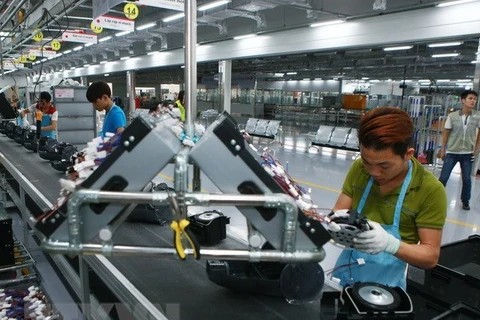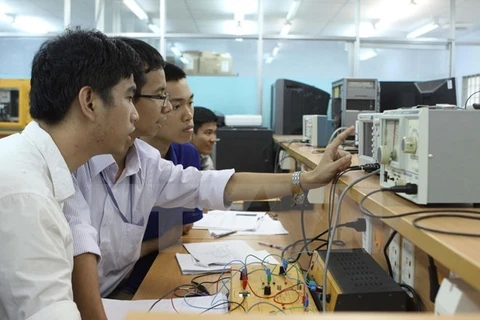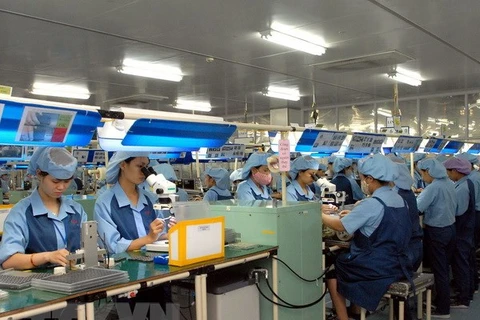Hanoi (VNA) – Vietnam’s socio-economic performance in July continued to see positive developments with equal growth in all the three sectors, namely macro economy, industrial production and services.
According to the General Statistic Office, the index of industrial production (IIP) in the month rose 14.3 percent, the highest level since February this year.
In the first seven months of this year, the country’s IIP recorded the highest rise of 10.9 percent since 2012.
The processing and manufacturing industry posted the strongest growth of 13.1 percent.
Despite a year-on-year decline of 1.7 percent to 19.5 billion USD in July export turnover, that in the seven months rose 15.3 percent to 133.7 billion USD.
The total retail sales of goods and services in July saw the highest growth of 13.3 percent since 2014.
The newly-registered and increased foreign direct investment (FDI) in January-July period reached 18.15 billion USD, down 3.5 percent against the same period last year. However, the disbursement was estimated at 9.85 billion USD, a year-on-year increase of 8.8 percent.
The number of newly-established firms in July decreased 7.8 percent against the previous month and 3.5 percent over the same month last year to 11,262 enterprises.
In the seven months, the country saw 75,793 new businesses, up 3.9 percent compared to the same period last year, but lower than the six-month growth of this year (5.3 percent).
The consumer price index (CPI) in July declined by 0.09 percent against June after three consecutive months of increase (April 0.08 percent, May 0.55 percent, and June 0.61 percent).
Economists said Vietnam’s economy will encounter a number of challenges in the remaining months of this year; hence, the country should adopt a number of measures to realise the growth target of 6.7 percent in 2018.
According to the Ministry of Industry and Trade, from now to the year’s end, there are still many unpredictable factors in the global economic environment, including the rising trade protectionism that will increase the risk of global trade war.
In this context, a flexible adjustment of exchange rates could help Vietnam boost exports if the country is able to maintain macroeconomic stability, experts suggested.
To ensure the economic growth target in 2018, Deputy Minister of Industry and Trade Cao Quoc Hung said his ministry will continue watching of the market, create an equally competitive environment, and protect the interests of domestic production industries, especially steel, automobile, fertilizer, and chemicals sectors, in association with reforming the economic structure and improving competitive edge.
To keep the inflation rate below 4 percent as planned, the ministry will further work with relevant ministries, departments and localities to monitor the developments of goods supply and demand, as well as domestic prices.
At a recent meeting of the National Financial and Monetary Policy Advisory Council, participants suggested managing effectively monetary and fiscal policies to bring inflation under control and keeping a close watch on the developments of raising interest rates of the US Federal Reserve (Fed) as well as issues arising in the China-US trade conflict.-VNA
VNA

























